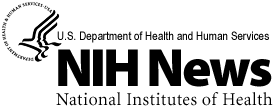| April 24-30 is TV-Turnoff Week --
We Can! Offers Families Tips and Resources to Help Them Turn Off
the TV
Do your children spend too much time in front of the screen? If
they spend on average more than two hours a day, the answer is yes!
TV-Turnoff Week (April 24-30) is an excellent time to take steps
to wean your family from the screen and adapt a healthier way of
life. The We Can! (Ways to Enhance Children's Activity and Nutrition)
program of the National Institutes of Health (NIH) has resources
for parents, teachers, and community organizations to help children
and families reduce the amount of time spent watching television,
playing video games, and participating in other leisurely "screen
time" activities. Studies have linked hours of TV watching
to increased risk of being overweight or obese. Conversely, researchers
have found that children and adolescents who reduce the amount of
screen time have lower body mass index (BMI) and less body fat compared
to peers.
Karen A. Donato, S.M., R.D., program coordinator of We Can! and
the Obesity Education Initiative of NIH's National Heart, Lung,
and Blood Institute (NHLBI), is available to discuss research regarding
leisure screen time and offer tips for families to reduce screen
time during TV-Turnoff Week and year round. For example, a free
screen time log can be downloaded to help families assess how much
time children (and parents) spend watching TV, playing inactive
video or DVD games, or using the computer for noneducational purposes.
A public awareness program to prevent childhood obesity, We Can!
was developed by NHLBI and is being promoted in collaboration with
three other NIH Institutes -- the National Institute of Diabetes
and Digestive and Kidney Diseases, the National Institute of Child
Health and Human Development, and the National Cancer Institute
-- as well as several national private sector organizations. In
addition to ideas for parents to turn screen time into active time,
We Can! offers proven lessons for youth and parents to adapt healthier
lifestyles, including the Student Media Awareness to Reduce Television
(SMART) curriculum. Schools and organizations in more than 77 communities
nationwide and in Canada have committed to providing We Can! programs
to local families.
TV-Turnoff Week is a nationwide campaign to raise public awareness
about the negative impact of excessive television watching and to
encourage children and adults to watch less television in order
to promote healthier lives and communities. The campaign is organized
by TV-Turnoff Network and other organizations.
To schedule an interview , contact the NHLBI Communications Office
at 301-496-4236. To find We Can! community sites,
visit http://wecan.nhlbi.nih.gov
and click on "Get Involved."
-
For more information:
Part of the National Institutes of Health, the National Heart,
Lung, and Blood Institute (NHLBI) plans, conducts, and supports
research related to the causes, prevention, diagnosis, and treatment
of heart, blood vessel, lung, and blood diseases; and sleep disorders.
The Institute also administers national health education campaigns
on women and heart disease, healthy weight for children, and other
topics. NHLBI press releases and other materials are available online
at: www.nhlbi.nih.gov.
The National Institutes of Health (NIH) — The Nation's
Medical Research Agency — includes 27 Institutes and Centers
and is a component of the U. S. Department of Health and Human Services.
It is the primary federal agency for conducting and supporting basic,
clinical, and translational medical research, and it investigates
the causes, treatments, and cures for both common and rare diseases.
For more information about NIH and its programs, visit http://www.nih.gov.
|

